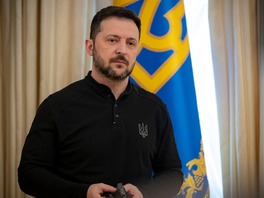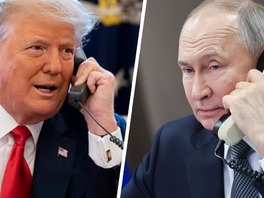These are exciting and intriguing times for Ukrainian politics. With both Zelensky’s and Sluga Naroda’ historical landslide victories, it’s becoming clear that Ukraine’s future foreign policy will be shaped by a very specific and rather inexperienced group of people. Yet, the sole and most important question since 2014 remains: how do we end the conflict with Russia? Israelian Prime Minister Netanyahu’s visit has reawakened the rumors that he might take upon himself the role of mediator in the Ukrainian-Russian conflict, and it’s impossible not to roll one’s eyes at the mere thought of it.
These rumours have been confirmed, denied and then repeated again by several news sources in the past month, without any official confirmation. But – and there’s the rub – there also hasn’t been an outright refusal.
Now, would it really be the worst idea to give Israel a mediating voice in a seemingly endless conflict that has been smouldering for years now? After all, both parties have too much to lose to solve the conflict on their own: Ukraine refuses to give up its territorial authority and integrity, whereas Russia – in good old Soviet-style – refuses to lose face. Israel, being the perfect mediator in theory, has ties with both the USA and Russia. Friendly ties. Maybe too friendly?
The most objective answer is: no, it’s not the worst. Netanyahu is obviously an expert in foreign policy to be reckoned with. His years of experience – shipping between Israel’s eternal loyalty to the USA and ethnical ties to Russia – enable him to successfully make use of Israel’s most powerful weapon: diplomacy. Zelensky might even be able to learn a trick or two from Netanyahu’s diplomatic playbook, especially when it comes down to asking for foreign support without becoming the beggar state of the international community.
But does this mean we should involve Netanyahu in an already tense and tangled discourse with Russia? Absolutely not. It’s almost an offense to think that the mediator in the Ukraine-Russia conflict was to be the representative of another state involved in illegal occupation.
It’s regrettable that Zelensky, during his inauguration speech in May, decided to state that “we must become Icelanders in soccer, Israelis in defending our land, Japanese in technology”. Regrettable, because it shows how out of touch Zelensky is with the European view on the Israeli-Palestinian conflict and Israel’s non-conformism to the international rules of jus in bello and jus ad bellum. In no way, by European standards, is it desirable to become “Israelis in defending our land”. Netanyahu’s policy in the Israeli-Palestinian conflict has been a clear dismissal of the Geneva Conventions and consistently is in violation of International Human Rights, International Humanitarian Law and Customary Law. The thought of having him take the role of a peaceful mediator is almost tragically comical.
Netanyahu has come to Ukraine for the first time in twenty years to score popularity points with his ethnic Ukrainian voters in Israel for the upcoming elections in September. Nothing less, nothing more. Israel has no other interests in Ukraine, nor has it made any attempts to support it. The Israeli government has yet to ratify the trade agreement with Ukraine, which was signed back in January. Israel also didn’t sign a 2019 joint statement letter by Ministers of Foreign Affairs, condemning Russia’s illegal occupation of Crimea. It has made no attempts in its foreign policy to offer Ukraine any sort of “steadfast support”.
There is no harm in continuing friendly relations with Israel, but President Zelensky must remain focused on developing a cohesive foreign policy strategy with reliable partners. There’s room to ameliorate relations with neighboring countries, such as Poland and Hungary, or even to reach out to unlikely, yet important, potential partners, like Turkey. Relying on Israel, however, seems like a surefire way to alienate European backers and significantly weakening Ukraine’s position.





